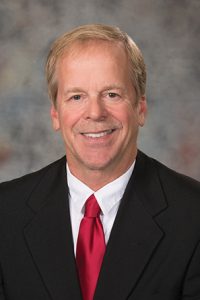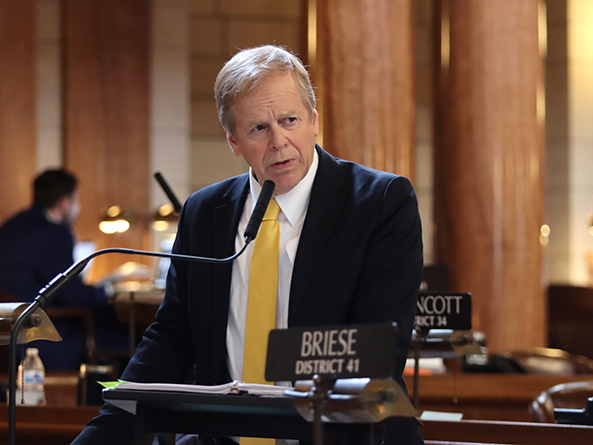School revenue cap modified, advanced to final round
Lawmakers gave second-round approval May 11 to a bill that would provide additional property tax relief to Nebraskans while limiting increases in the amount of property taxes public school districts may collect.

As amended on general file, LB243, introduced by Albion Sen. Tom Briese, gradually would increase the minimum amount of relief granted under the Property Tax Credit Act from the current $275 million to $560 million by tax year 2029. After that, the amount would grow by the percentage increase in the total assessed value of all real property statewide over the prior year.
Briese introduced an amendment on select file, adopted 45-0, under which the amount would increase to $475 million by tax year 2028. The following year, it would grow by the percentage increase in statewide valuations, plus an additional $75 million. The amount then would continue to grow by the percentage increase in statewide valuations.
Briese said the overall reduction would honor an agreement that the Legislature provide roughly equal amounts of property tax and income tax relief this session. The related income tax proposal, LB754, introduced by Elkhorn Sen. Lou Ann Linehan, had to be scaled back, he said.
LB243 also would limit the amount by which a school district could increase its property tax request — the amount of taxes requested to be raised through its levy — from one year to the next by 3 percent, with some exceptions.
Under the bill’s provisions, a district’s property tax request could not exceed its property tax request authority, which the state Department of Education would calculate annually.
To ensure that the cap operates properly, Briese said, the amendment would make several changes to the calculation, including a modified student growth factor intended to ensure that the state’s fastest-growing school districts are not “handicapped” by the proposal.
After four hours of debate on select file, Briese filed a motion to invoke cloture, which ends debate and forces a vote on the bill and any pending amendments.
The motion succeeded on a vote of 44-1. Thirty-three votes were needed.
Lawmakers then advanced LB243 to final reading on a vote of 41-0.


